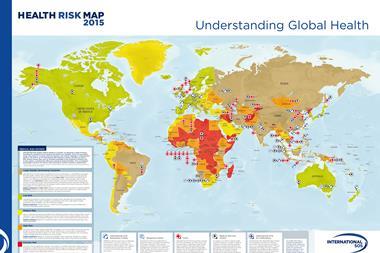As more cases of suspected imported Ebola are detected, businesses are asked to assess pandemic plans

Africa-based business continuity firm ContinuitySA is urging corporates with operations in West Africa to activate their business continuity plans following reports of suspected cases of imported Ebola in several countries
The first incident of imported Ebola was reported in Nigeria. The case involves a 40-year-old Liberian-American civil servant, who, on 20 July, flew to Lagos, Nigeria, from Liberia, one of three countries in the region affected by the deadly disease.
Another case of suspected imported Ebola was detected in Saudi Arabia on 5 August, but tests to confirm this are pending.
Tracey Linnell, general manager at ContinuitySA, warned: “Companies need to look at the current Ebola outbreak and what risks it poses to them and their employees, and put protocols in place now. At the same time, they should make sure their overall approach to pandemics is in place.”
Linnell said that companies whose people travel into West Africa or that have business relationships with it need to be sure they are educating staff about symptoms and are monitoring the health of at-risk employees. She added that businesses need to have a plan for getting employees out of countries they might be visiting if borders are closed. For example, some airlines have stopped flying to Liberia.
“The possible impact on employees is inevitably the first thing people think about, but businesses also need to pay strict attention to their supply chain dependencies,” she said.
“What would the effect on business operations and the wider supply chain be were borders to be closed owing to a pandemic? Remember, the direct effect could be on a business partner, but if it is are vital to your operations, the knock-on effects are likely to be severe. You need to understand exactly what the risks are and have mitigation strategies in place.”
Linnell advised that companies that documented pandemic strategies for the SARS scare in 2003 could use them as the basis for an Ebola strategy.
“Companies that haven’t implemented a business continuity management plan should consider doing so as a matter of urgency,” Linnell said. “This means that they will have an integrated response and mitigation strategy to this and other risks in place.”




















No comments yet